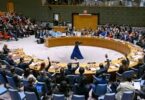Federal Minister for Finance and Revenue, Miftah Ismail has appreciated growing Pak-Iran cooperation in energy and trade sectors and said that the coalition government was determined to strengthen ties with the Islamic republic in all areas. During an interview with IRNA, he said that he had advised the governor of the State Bank of Pakistan to consult his Iranian counterpart to materialize the proposal of increasing bilateral trade volume worth $500 million in local currencies. According to him, more travel routes should be opened to facilitate trade, tourism, and people-to-people exchanges between the two countries which would definitely help promote trade. Miftah said that Pakistan was in dire need of gas and energy that could be easily fulfilled by Iran, while the Pakistani government had already taken a major step to increase the import of electricity from Iran.
Pakistan and Iran are two brother Muslim Countries, and first-door neighbors. Both nations have many things in common while their geography, religion, ethnicity, and cultural association merit deep trade and economic relations between the two countries that unfortunately did not exist over the past decades. There had been more talks about the prospects of Pakistan and Iran’s bilateral trade and cooperation but fewer actions had been taken in this regard. Historically, the Successive governments in the country did not make enough efforts to boost bilateral relations with their western neighbor mainly due to unforeseen apprehensions and foreign pressure.
According to government statistics, the volume of bilateral trade between Pakistan and Iran stood at US $392.08 million with nominal Pakistani exports to Iran worth $22.86 million. There is a lot of irregular trade and smuggling of Iranian oil and other commodities in Balochistan that has not been either regularized or stopped in the past. Recently, both nations have established border markets to support residents of their border regions and to promote and regularized border trade, however, this trivial endeavor could not be an alternative to the large-scale trade and investment between both countries.
Previously both nations struck a gas pipeline deal in 1995 under which a 2775 kilometers long gas pipeline was to be constructed by the two countries to deliver natural gas from Iranian energy reserves in Bushehr to Multan in Southern Punjab. Although Iran has completed the construction of its portion of the gas pipeline, the government of Pakistan backtracked on the project due to fear of US sanctions and Saudi pressure to abundant the deal. After the cancelation of the energy deal, the Pak- Iran ties usually remained at a low par and both countries mostly worked to maintain peace in their insurgencies-hit border regions, border management, and cooperation against drug trafficking and counter-terrorism.
Currently, Pakistan’s Ministry of Energy is planning to acquire electricity from Iran to fulfill its electricity needs for its border regions while the option of importing Iranian oil and gas is also under deliberation. As Finance Minister said, there had been technical and legal issues in bilateral trade relating to currency and the opening of LCs (letters of credit) in the US dollar which is being dealt with through trading in local currencies. In fact, the outbreak of pandemics and war in Ukraine had completely changed the geopolitical dynamics of global politics and America itself approached its adversaries Iran and Venezuela for energy purchases, hence Pakistani government must not miss this opportunity to grasp optimum benefits for the country.






